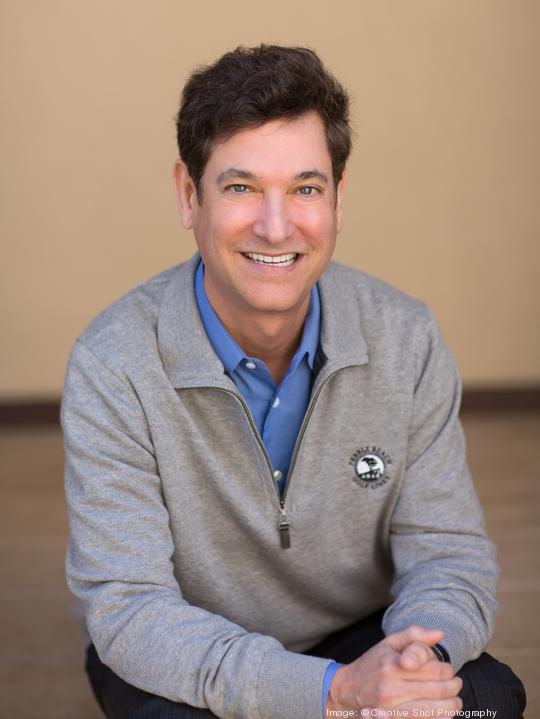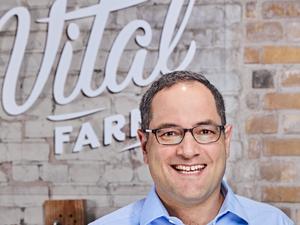
The $55 million series B funding round ZenBusiness Inc. announced early Nov. 19 points to optimism about how entrepreneurship may help the nation recover from the pandemic. It ranks among the largest venture capital rounds for an Austin company this year.
The startup's mission — helping people start companies — is of critical importance right now, with the economy hobbled by a global health crisis, according to Jim Breyer, one of ZenBusiness’ investors.
“I truly believe that for the U.S. to get back on a significant expansion trajectory, it’s going to come down to small business formation and growth,” Breyer said.
ZenBusiness was founded in 2016 by CEO Ross Buhrdorf, the former chief technology officer of HomeAway, and Chief Operating Officer Shanaz Hemmati. It helps entrepreneurs start businesses faster by centralizing all of the services needed to create a company, from checking to see if a business name is available to filing legal documents. ZenBusiness serves companies of different sizes, but among its specialties is helping the “solopreneur,” Buhrdorf told Austin Business Journal in April. In July, ZenBusiness acquired Austin-based Joust Labs, and can now offer customers merchant banking accounts and invoicing systems needed for them to conduct their business.

Breyer is perhaps best-known for backing Facebook Inc. (Nasdaq: FB) in 2005, a year after Mark Zuckerberg created the social media company. He said Buhrdorf and the ZenBusiness team have created “the best solution I’ve seen in getting small businesses up and running, and scaling.”
With ZenBusiness’ products and services, entrepreneurs are able to easily navigate the “expensive and confusing and complicated” process of launching a company, Breyer said. “The appeal of ZenBusiness is that it helps new businesses build right away, to grow the business tremendously, and not spend time focusing on the nuts and bolts.”
Cathay Innovation, a San Francisco-based venture capital fund affiliated with Cathay Capital Private Equity, led the series B round. San Francisco-headquartered GreatPoint Ventures, Breyer Capital and California-headquartered Omega Venture Partners also chipped in.
All existing investors participated in the series B round and some increased their investment, Buhrdorf said. Existing investors include New York City-based VC firm Greycroft, which led ZenBusiness’ $15 million series A round closed in 2019; New York City-headquartered Lerer Hippeau Ventures, the VC firm that led the company’s $4.5 million seed round closed in 2018; Interlock Partners, which has offices in Dallas and New York City; Austin-based Mark vc and ATX Venture Partners.
ZenBusiness has raised $75 million to date, Buhrdorf said, adding he currently has no plans to raise another round.
Picking up customers during Covid
Buhrdorf said he and his colleagues would use the capital infusion to “continue to expand the platform, and continue building out our banking solution.” ZenBusiness also soon will launch a product that helps entrepreneurs do their business taxes and “keep them in compliance,” the CEO said.
The company plans to add more than 100 new hires to its current staff of about 150, who are based throughout the country. One new position will be an executive-team member who will serve as head of legal, the CEO said. In the past 12 months, the ZenBusiness team has grown by more than 100%. The company employed 56 as of April.
At that time, most of the company’s employees were based in the Texas capital. But due to the pandemic, Buhrdorf said, “ZenBusiness made the decision to pivot to full-time remote work for all employees. We no longer work out of an office in downtown Austin.”
The CEO added that the company does “not have any current plans to return to an office space, but may reevaluate in the future if needed.”
After Covid-19 hit, Buhrdorf promised not to lay off any employees. He’s kept that promise in part by cutting expenses and halting “all future investments that would impede that goal. We [initially] froze hiring, eliminated travel, cancelled all downtown parking spots and eventually gave up our lease in downtown Austin.”
The company also has doubled its customer acquisition since the onset of the pandemic, Buhrdorf said. Its customers are primarily service businesses, "including delivery companies, therapists, digital marketers, among others,” he said.
Buhrdorf pointed to Katelyn Walstrom, owner of Quality Family Ranch LLC, an organic farm in Boling-Iago, southwest of Houston, as an example.
“Quality Family Ranch started working with us during the pandemic and is one of the recipients of our $1,000 ZenBusiness grants,” the CEO said. “With the help of ZenBusiness and her grant funds, Katelyn has been able to expand her line of products, create a website, have all of her papers filed, and start her company knowing that she can focus more on the growing process rather than worry if everything is taken care of.”
More than 80,000 microbusinesses have launched since 2018 using ZenBusiness, according to the company. The U.S. Small Business Administration defines microbusinesses as those that employ fewer than 10 people.
Buhrdorf said 87% percent of those “are first-time entrepreneurs.”
ZenBusiness, he said, exists to help those like the 2 million Americans who have begun freelancing in the past year, according to a September report by California-headquartered freelancing-platform Upwork Inc. The study found that 60% of those new freelancers said no amount of money could persuade them to return to a traditional job.
The CEO said ZenBusiness is here to help folks transform their side hustles into full-time entrepreneurial ventures. That mission is among the reasons Buhrdorf and the company’s co-founders chartered ZenBusiness as a public benefit corporation. Those corporations are chartered with public benefits in mind, not only generating profits for shareholders.
“What we have seen over the past couple of years is that more and more people are re-assessing their professional lives and many are making the move to become entrepreneurs — with the onset of Covid-19, this trend has been accelerated,” he said. “We’re proud of the role we have played to help so many start and run their own successful businesses.”
Investing with purpose
Purpose-driven companies are among Breyer’s primary focuses when considering an investment these days. He said Austin continues to be a leader in that field, particularly “from a revenue standpoint.”
Breyer compared ZenBusiness to another trailblazing company in which he continues to be a “happy shareholder” — New York City-based Etsy Inc. (Nasdaq: ETSY), an e-commerce business where people may purchase handmade and vintage items, as well as craft supplies.
“When I look at ZenBusiness, I see many upsides,” he said. “It has adjacent product offerings to Etsy, where the sellers are microbusinesses.”
As Breyer did his due diligence on ZenBusiness while deciding whether he would invest, a common theme emerged among several reference checks.
“Two or three entrepreneurs said Ross has a consistent record of under-promising and over-delivering, quarter by quarter, year by year,” he said. “That’s an exceptional characteristic for investors.”
Another trait that stood out: The ZenBusiness team’s “tremendous operational emphasis on detail,” Breyer said.
Buhrdorf declined to share revenue figures and to disclose whether ZenBusiness is profitable. But he predicted it would become “a $10 billion business,” based on domestic and international business trends.
One of those trends is that “50% of all millennials have a side gig,” Buhrdorf said, a claim backed up by a 2018 report by Experian PLC.
“It’s a macro-level trend,” Buhrdorf said. “As entrepreneurs, we look for unicorn-like solutions, and we’re pinching ourselves over here. We will be going international.”
Regarding ZenBusiness competitors, the CEO said that companies such as California-headquartered LegalZoom.com Inc. and Houston-based IncFile.com LLC, “provide small business formation services.” But, “what makes us different — and more valuable to an entrepreneur or microbusiness — is that we provide all the tools under one platform to help customers go from business idea to reality. Microbusinesses can find one-off offerings elsewhere, but our value add is that we make it as easy as possible to find everything you need in one place to create a successful business.”
Other large funding rounds closed by Austin companies this year have included biopharmaceutical company Shattuck Labs Inc.’s June $118 million series B round, startup Vapor IO Inc.’s January $90 million series C round and real estate-tech startup OJO Labs Inc.’s June $62.5 million series D round. And on Nov. 17, software maker ActivTrak announced a $50 million series B round.







